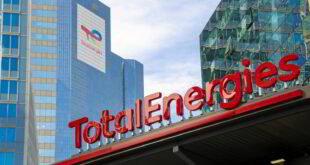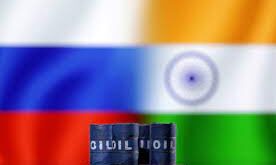The Organisation of Arab Petroleum Exporting Countries (OAPEC) have said that its members support the long-term oil-indexed contracts for natural gas as they provide guaranteed stability to the market as well as minimise risks on capital-intensive projects.
“In our opinion, long-term contracts bring stability and a win-win situation between the suppliers and the consumers,” the officials of the Kuwait-headquartered agency said at the 48th edition of the GECF Gas Monthly Lecture Series, organised by the Gas Exporting Countries Forum (GECF), and entitled ‘The Natural Gas Industry in Arab Countries: Reality and Prospects’.
OAPEC’s Secretary General Ali Sabt BenSabt, Director of Technical Affairs Department Dr Samir Mahmoud Elkareish, and Gas Expert Eng Wael Hamed Abdel Moati noted that between 1990 and 2019 the Arab region witnessed the highest total growth rate of proven gas reserves in the world, from 25 tcm to almost double at 55 tcm, and yet the production did not match the pace of findings.
“We are (the Arab region) producing 60% of the global gas production while holding 27% of the proven gas reserves. In comparison, North American holds 8% of the reserves while producing 28% of the global gas production. The proportionality of gas reserves growth to
gas production growth in the Arab world is lower compared to other regions in the period 1990-2019 and there is still a room for investments in the gas resources to boost production levels,” the officials said.
“The Arab region was among the largest contributors to the global gas production increase the past decades and play a key global role to provide efficient, cleaner, and sustainable energy source to customers. The key message we have is that gas has the potential to play a greater role in attaining a sustainable energy future,” they added.
This message of a greener global energy system was echoed by the GECF Secretary General, who maintained that the energy market is undergoing structural changes with natural gas leading the race to top of the global energy mix due to its clean attributes.
“The pandemic pushed the energy markets into uncharted waters and energy demand as a whole declined by 8% in 2020. Natural gas has fortunately suffered a lower percentage decline than either oil or coal and demand is set to return to growth, albeit with decarbonisation higher on the agenda than before,” said GECF’s Yury Sentyurin.
The GECF Secretary General also called on greater cooperation between the Forum and Oapec due to the two entities’ geographical proximity, shared member countries, and similar values and missions. The GECF is headquartered in Doha, Qatar – the world’s largest LNG exporter.
“I think there is a lot of common ground between the GECF and OAPEC. I hope our cooperation can continue to grow in the future, particularly in the areas of technical studies and reports, OAPEC annual meeting on gas expert group, and international cooperation in the field of natural gas,” urged Sentyurin.
OAPEC was established in 1968 as a response to the need for long-term interdependence of its members, which currently include Algeria, Bahrain, Egypt, Iraq, Kuwait, Libya, Qatar, Saudi Arabia, Syria, Tunisia, and the UAE.
Whilst the Covid-19 pandemic reduced the Arab LNG exports by 1% y-o-y over the nine months of 2020, many of OAPEC members were undergoing transformation on the back of urbanisation, population growth, and globalisation.
By 2050, half of the countries in Mena are projected to experience population increases of at least 50% from their 2015 levels. Among this group, two of the largest population increases in absolute terms will be in Egypt and Iraq, both members of the OAPEC as well as the GECF.
According to OAPEC, oil and natural gas reserves wield a substantial influence on the lives and economies of the region, and this is why several countries have announced their plans to expand LNG production capacity over the next 5-7 years, including, Qatar (49 mtpa), Mauritania (10.1), and Oman (1.5). By 2027, the LNG capacity in the Arab region will be boosted by around 45%.
Total 2020-2024 gas investment in the Arab countries is projected to be around $162 billion.
“These investments will be in the opening of new blocks, tapping of gas-cap and unconventional reservoirs, technically challenging gas fields, and expanding LNG export,” noted the OAPEC leaders.
 Iran Energy News Oil, Gas, Petrochemical and Energy Field Specialized Channel
Iran Energy News Oil, Gas, Petrochemical and Energy Field Specialized Channel




